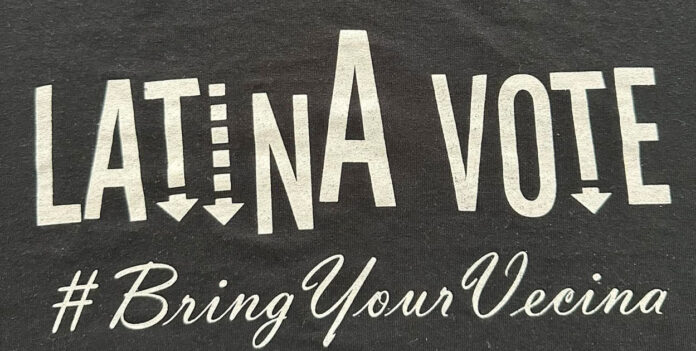As the United States approaches the November elections, millions of new Americans prepare to vote for the first time. According to experts, naturalized immigrants, as new U.S. citizens, could significantly impact the general elections, especially in key states.
Both parties are intensifying their strategies to attract the attention of this group of voters, particularly Latinos, whose growing importance does not go unnoticed, especially in highly contested states like Pennsylvania.
According to figures from the Pew Research Center, there are about 615,000 Latinos eligible to vote in the Commonwealth in the upcoming elections. Considering that in 2020 the Democrats won Pennsylvania over the Republicans by just 80,000 votes, the weight of the Latino vote becomes significant.
Although it is increasingly understood that there is no single «Latino vote» since it is a very diverse minority, there is still a tendency to consider that they vote as a bloc, predominantly Democratic. This, coupled with still low turnout figures and prevailing apathy, means that the Latino electorate does not generate the interest it could and should have.
Nevertheless, it is known that more Latinos have joined the ranks of former President Trump, not only those from dictatorships like Cuba or Venezuela, but also more Latinos of other origins are becoming part of the MAGA movement.
Regardless of the party, the higher the percentage of Latinos who vote, the greater the political influence the community will have and the greater their ability to influence the creation of policies and programs that benefit them in areas such as employment, health, education and human services.
According to the American Immigration Council (AIC), new citizens could have a significant impact on the elections, especially in key states with large immigrant populations.
Christine Chen, executive director and co-founder of Asian Pacific Islander American Vote (APIAVote), a non-partisan, non-profit organization that helps mobilize Asian-American voters, told VOA that in contested states, the number of Asian and Pacific Islanders (AAPI) who voted in 2020 exceeded the margin of victory that year. Chen said that only 54% of voters surveyed said they had been contacted by the Democratic or Republican parties.
Biden launched a campaign to reach out to Asian-American voters in July after establishing coalitions focused on Black and Latino voters. According to the Pew Research Center, 3.5 million eligible immigrant voters in the U.S. are from Mexico, more than from any other country. However, at least in the Philadelphia area, the majority of eligible Latino voters are primarily from Puerto Rico, a right those on the island do not have.
While in Trump’s campaign immigrants are still predominantly seen as enemies, Vice President Kamala Harris spoke at an APIAVote event on July 13 in Philadelphia. She is expected to announce her running mate next week. As Afro-Latinas in the city are organizing to support her, the candidate is expected to seek a closer relationship to better understand the needs of this population, who are accustomed to politicians seeking them out during election times and abandoning them for the next few years. Casting a vote is not enough; demanding accountability follows.
For now, it is necessary to remember that registration is required to vote. In Pennsylvania, the registration deadline is two weeks before the November 5th election, but it is better not to wait until the last moment to register.
The Pennsylvania government has enabled this site: https://www.pa.gov/en/agencies/vote/resources.html, where you can find the forms to complete the registration process, and the pages https://www.vote.org/ and https://guides.vote are also available to obtain complete, reliable and non-partisan information.







